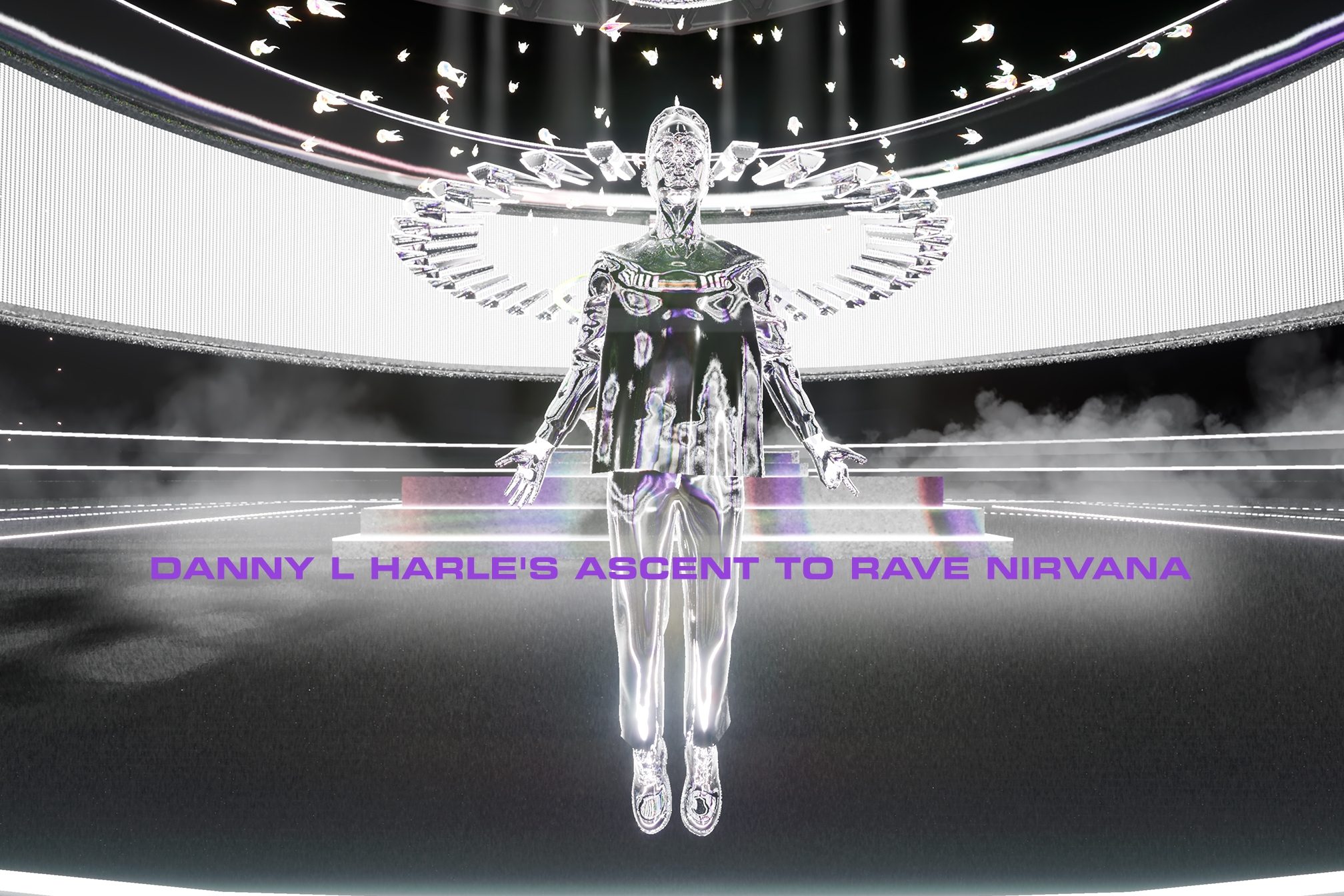 Features
Features
Harlecore vividly renders Danny L Harle's experience of rave euphoria
Patrick Hinton speaks to Danny L Harle about his pandemic-proof rave utopia Club Harlecore and his love for the sounds fuelling it
In March 2020 when the pandemic overcame the UK and all clubs shut down indefinitely, Danny L Harle was already several years into building an alternate universe where the rave never ends. That project, ‘Harlecore’, is the culmination of a long period of thought from the PC Music affiliate about his experience of rave music and the best way to express it. The result is an album and interactive virtual club that vividly communicates the internal world of euphoria that the music makes him feel.
Harle’s passion for rave music developed separately from its origins of soundsystems and generators in a field. Now aged 31, he was too young at the time to be aware of the height of 90s free party movement. His first exposure to the sounds came through their mainstream breakthrough, such as The Prodigy’s divisive entry into the charts and in films like Kevin & Perry Go Large. “It was almost like a bit of a joke — a jokey reference for the adult generation,” he recalls, “but I very much felt an affinity with it even though I saw it in this context.” As a self-confessed “nerd” growing up, he never went out, but he still developed an intimate connection with the associated sounds. “My love of rave music was between me and some headphones. It created a deeply personal, inner world,” he says.
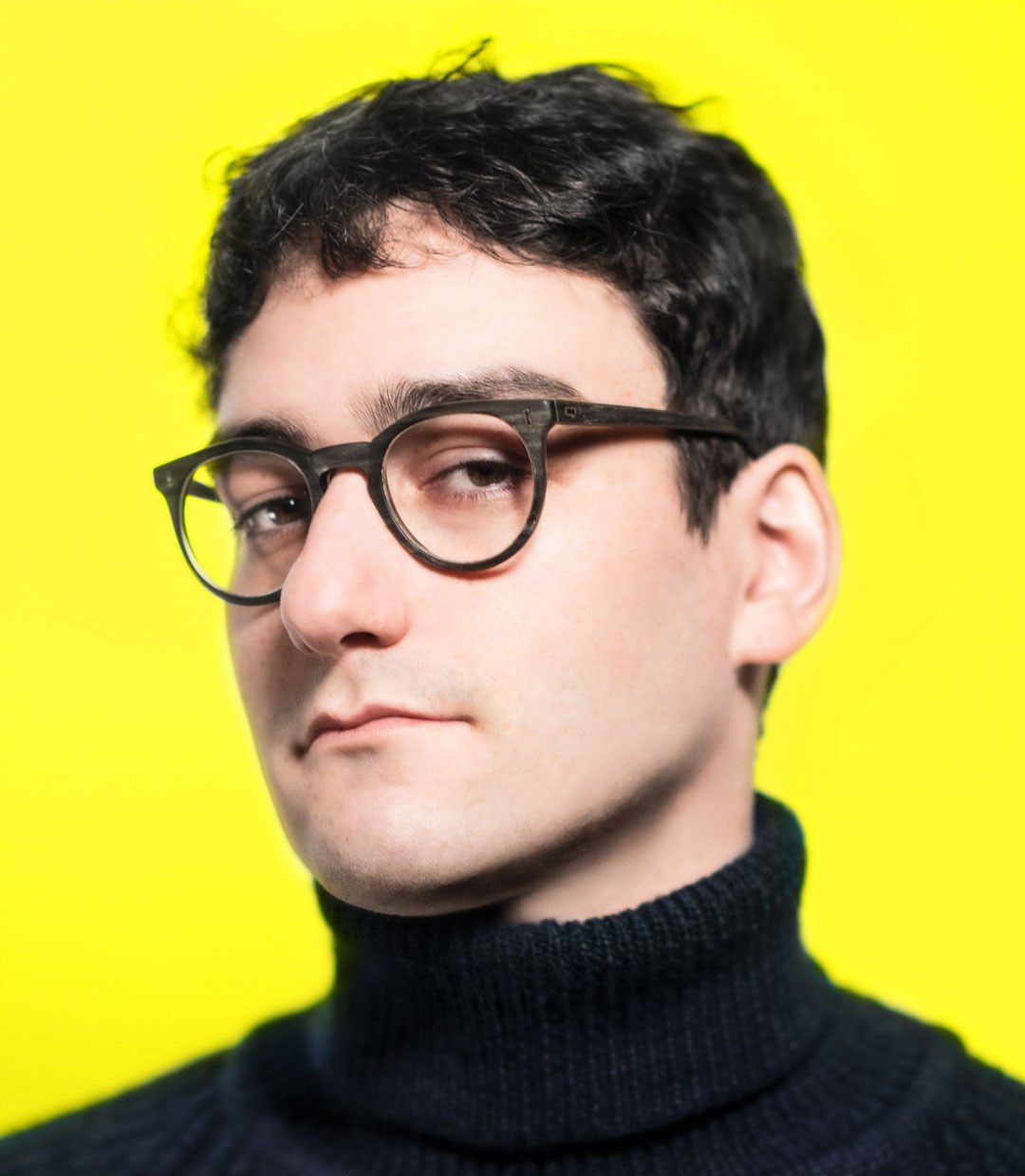
Harle’s musical background is varied. He’s the son of Ivor Novello Award-winning saxophonist John Harle and played in the Royal Academy’s free jazz group as a teenager, he’s written a chamber opera that was performed at the Wellcome Institute, and was the first person to study classical music for bass guitar at Goldsmiths University, going on to study composition at Guildhall. At Goldsmiths, he reconnected with former schoolmate A. G. Cook and helped him crystallize the idea for PC Music, putting out his first release as Danny L Harle, ‘Broken Flowers’, on the then-fledgling label in 2013. Despite all his musical training and broad reference points, Harle says he doesn’t advocate “this Victorian idea of getting some kind of rounded musical education.” He thinks you should work out what kind of music you want to make and hear, and pursue learnings and collaborators relevant to that. Taking that approach has seen him gradually move away from live performance instruments towards what he views as the greater capabilities of electronic production, and work with innovative artists such as Charli XCX, Rina Sawayama, Tommy Cash and Caroline Polachek.
Read this next: The evolution of A. G. Cook
All the way through Harle’s work in music like pop and classical, that teenaged affinity with rave music kept growing. While teasing an upcoming album in a 2016 interview - when PC Music was partnered with Columbia Records and the poppy ‘Broken Flowers’ was finding a second life as Radio 1 A List material - Harle remarks: “Right now I’m basically just listening to happy hardcore music, but I can’t say that’s what the album will sound like.” One effect of his personal discovery of rave music through its somewhat maligned entry into the mainstream is that he didn’t realise how many other people out there enjoyed it. But gradually, he says, “I became more honest with myself about what kind of things that I liked and actually wanted to make, and I found out that other people almost secretly liked this music as well.” Whatever album Harle had in mind in 2016 is yet to materialise, and PC Music were dropped from that major label partnership later that year. But in 2017 while at a festival in the US, Harle saw Hudson Mohawke drop a Scott Brown track in a set, and hit him up Instagram to ask if he wanted to collaborate on making hardcore. He received an instant yes in response, and soon after they connected in an LA studio. The ‘Harlecore’ project began germinating from there.
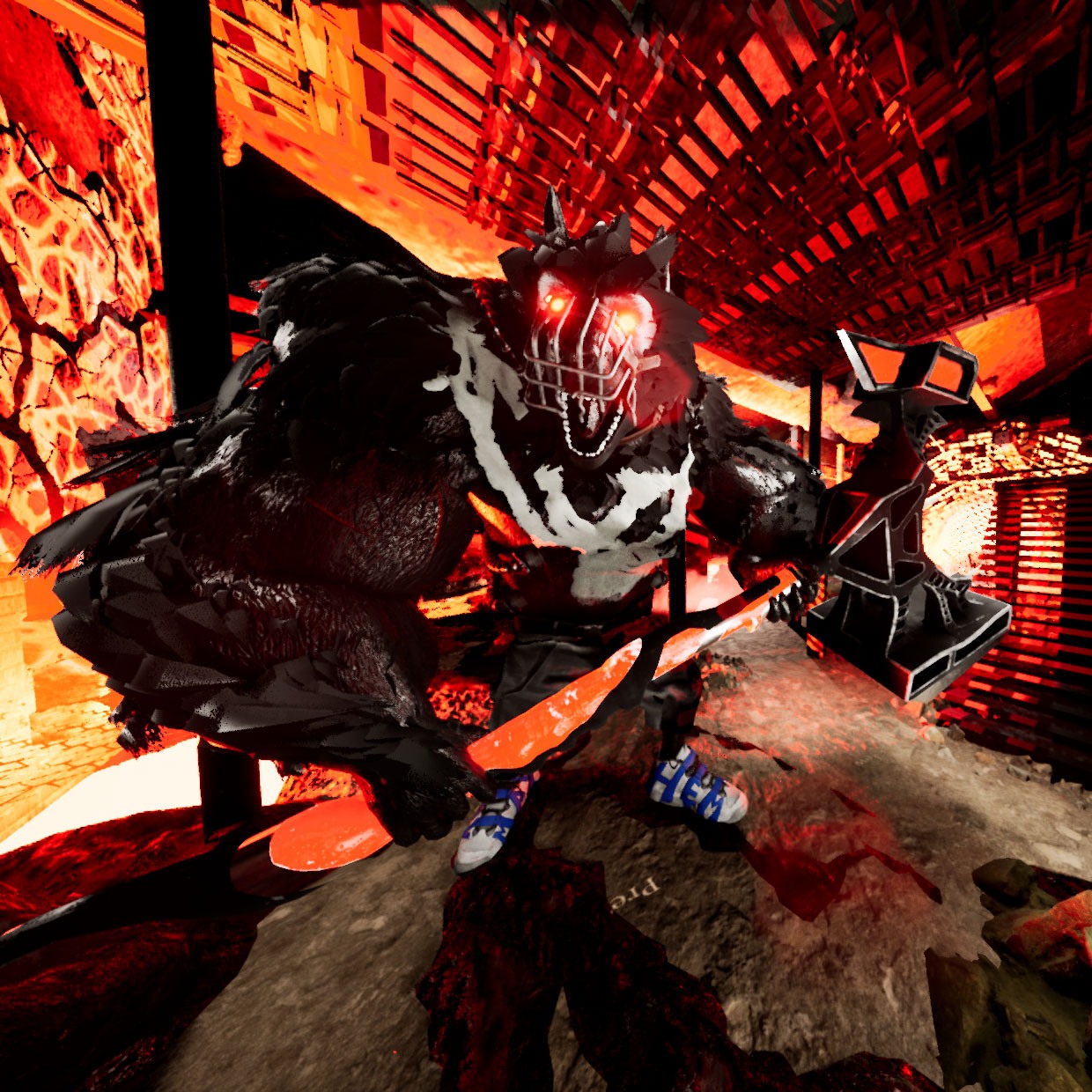
The name was established later that year with a sold out club night at Stoke Newington sweatbox The Waiting Room, where Harle was joined by DJs such as Hudson Mohawke (billed as DJ Mayhem), Lil Data as DJ MC Boing and Gabber Eleganza to play the euphoric UK hardcore made by the likes of Scott Brown, Force & Styles and Dougal that they wanted to hear and felt wasn’t really getting played elsewhere. “It went so well and there was so much interest in it in a way that I was not expecting,” Harle recalls. More nights in London followed, then a European tour, nights in LA and New York, where a lack of available DJs playing UK hardcore led to Harle getting friends involved as made-up acts, including Caroline Polachek appearing as DJ Ocean and animator Sam Rolfes playing a nu-metal turntable set as DJ Fuck.
Read this next: "Charming and disturbing": Gabber Eleganza is flying the flag for hardcore
Harle was simultaneously making music inspired by his love of hardcore but also distinct, bringing his own songwriting sensibilities and fusing the influence of collaborators and adjacent styles such as gabber and makina. Over time, “this bank of music started to evolve. It was all really contrasting styles but all within the same kind of wheelhouse. They're all trying to achieve euphoria, but they've all got their different ways of doing it. There was this one name that united the whole thing.”
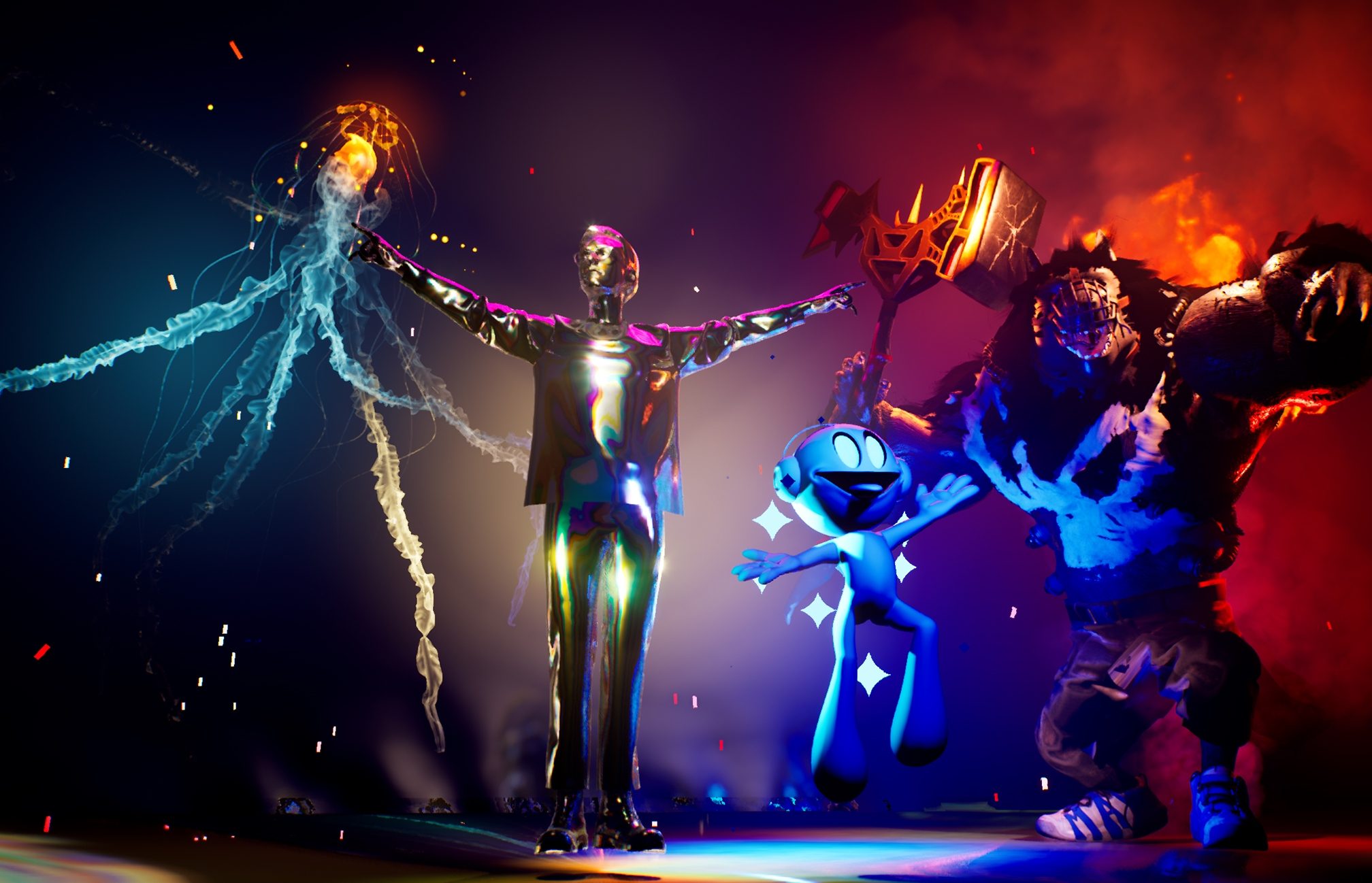
Although Harlecore is a real club night, Harle’s primary reference point for the music was still his solitary headphone sessions and that inner world of euphoria it created in his head. He wanted a way to represent that, coming to the idea for a multi-room virtual club. “When the concept started to emerge I was quite scared, like, oh my God I'm going to have to do this now,” he says, “but there's no way I would have been satisfied with this project if I hadn't been showing it rather than telling it. I have a bit of an aversion to music that requires a lot of talking to justify it.” There’s barely room for catching your breath let alone hosting a panel when listening to the deliriously gleeful soundtrack.
Visiting Club Harlecore reveals an imposing pyramid-like structure containing four rooms, each helmed by a character weaved into the project. “The characters are kind of explosions of the talents of these people,” says Harle. “I think it's fun to do that as an artist, to have an opportunity to really let loose, and not have the pressure of being yourself.” In the dungeon, Hudson Mohawke’s inner beast is unleashed as the bear-like, skelper-wielding DJ Mayhem who smashes up the fiery pit to a soundtrack channelling pneumatic gabber. DJ Danny, who’s a bit like the Silver Surfer if he’d been born in a Gatecrasher rave rather than the planet Zenn-La, whips up trance ecstasy in the chrome coloured Euphoria Stadium. MC Boing, a little blue man devised alongside Lil Data, jumps hyperactively around the swirling Bounce Room to complement the makina madness being played (“The criteria for an MC Boing song is it has to be written in less time than the song elapses”). Up in the heavens, Caroline Polachek’s ethereal vocals weave through a kind of chillout room commanded by the bewitching giant jellyfish, DJ Ocean.
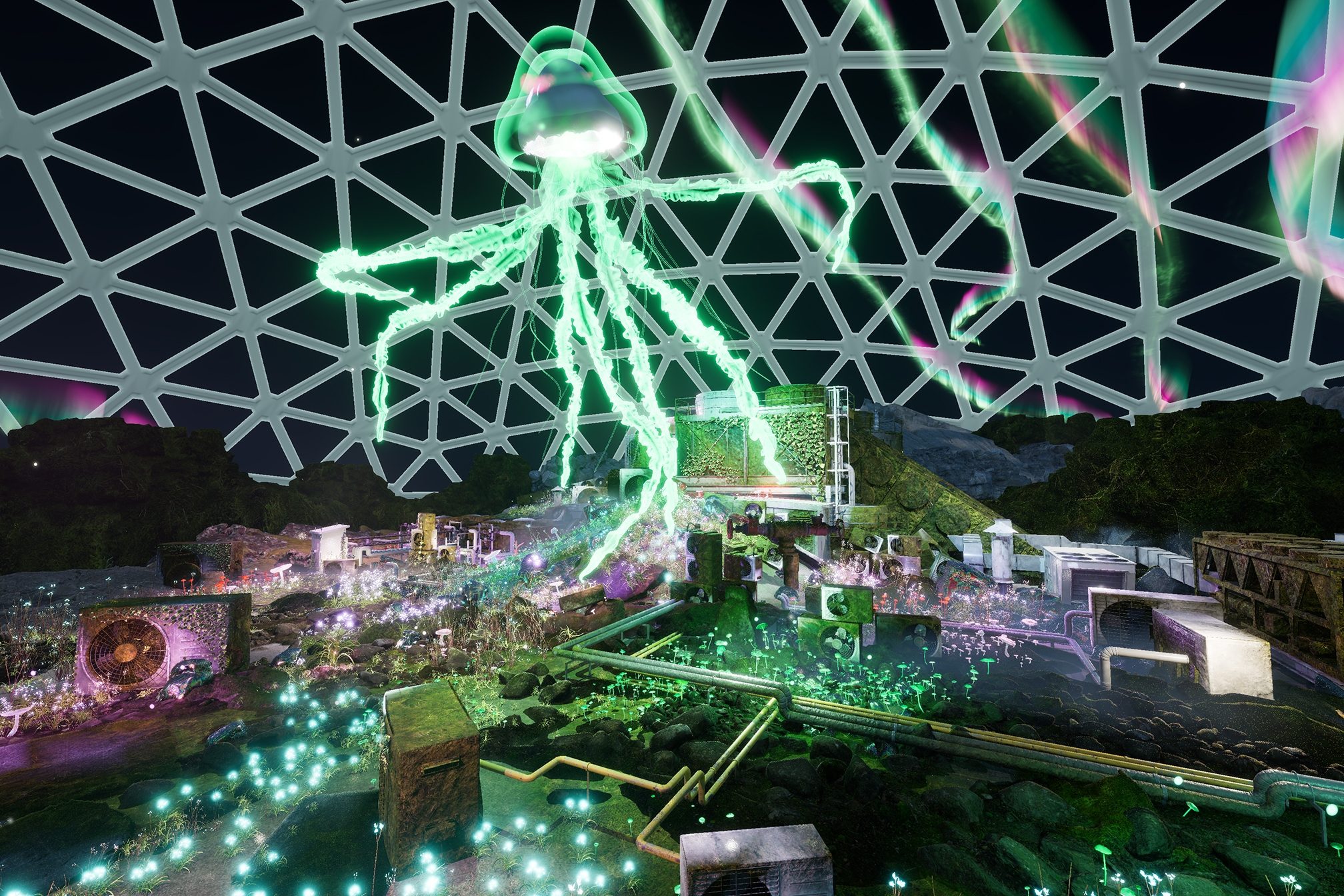
“Having come up with the concept, I inevitably had quite a strong idea of how it should look, but with no ability to make the visuals, which is a very frustrating combination,” Harle says. Fortunately, he found the perfect collaborators to bring it to life. EG Huang of the Taiwan-based creative studio aether3 worked on the imagery and immediately got the concept, despite a language barrier: “There's no direct translation for the word ‘euphoric’ in Mandarin which was initially a tough one, because at first that was my only descriptive word for every visual”. VR animator brothers Sam and Andy Rolfes, aka Team Rolfes, worked with tools such as motion capture and VR puppets to create the interactive experience. Making your way through the club is an intense and intoxicating experience, and its doors are always open — as long as you have a device and internet connection.
Read this next: Post-PC Music: How the London label inspired a new stage in the pop continuum
Harle sees the album, released via Mad Decent (although he confirms he is “still a PC Music artist”), as supplementary to the interactive experience, which is the main element, calling it “a true representation of my experience of this music.” Initially, he figured it might be a bit too esoteric to connect with an audience. That’s something Harle has experienced before: the early days of PC Music were mired with suspicion about the elaborate approach being some kind of ironic joke; it’s since become recognised as revolutionary, inspiring movements such as hyperpop. Harle is always genuine in his artistic output. As a teenager he says he made music with a “jokey element”, that in hindsight he recognises as a “defence mechanism for somebody making fun of it, because I was actually trying to make a good song. I had to get rid of that psychological shield and just present songs to people being like: I made this, I really like it, I hope you do too.” The humour that’s present in ‘Harlecore’ and a screwball character like MC Boing is an authentic reflection of a madcap style like makina (also known as "new monkey"). Rave music can be fun and funny, it can be dark and blistering, or transcendent and euphoric; it makes Harle feel emotional extremes. Club Harlecore expresses all of that.
He set to work on it pre-pandemic out of a compulsion to vividly manifest those feelings, despite bracing himself for the idea of a ‘virtual rave’ possibly falling a bit flat. Then COVID-19 hit, online events became the norm, and it rocketed into relevancy. “It's one of the few projects that might have actually benefitted from this whole awful situation, just because it exists in this kind of dreamlike event horizon place between things,” Harle says. “I hope that it helps people to experience at this time, and if anything, gives them somewhere to go, with a sense of place and a sense of escape, which I think is where a lot of these desires come from to create other worlds, create shared dream states.”
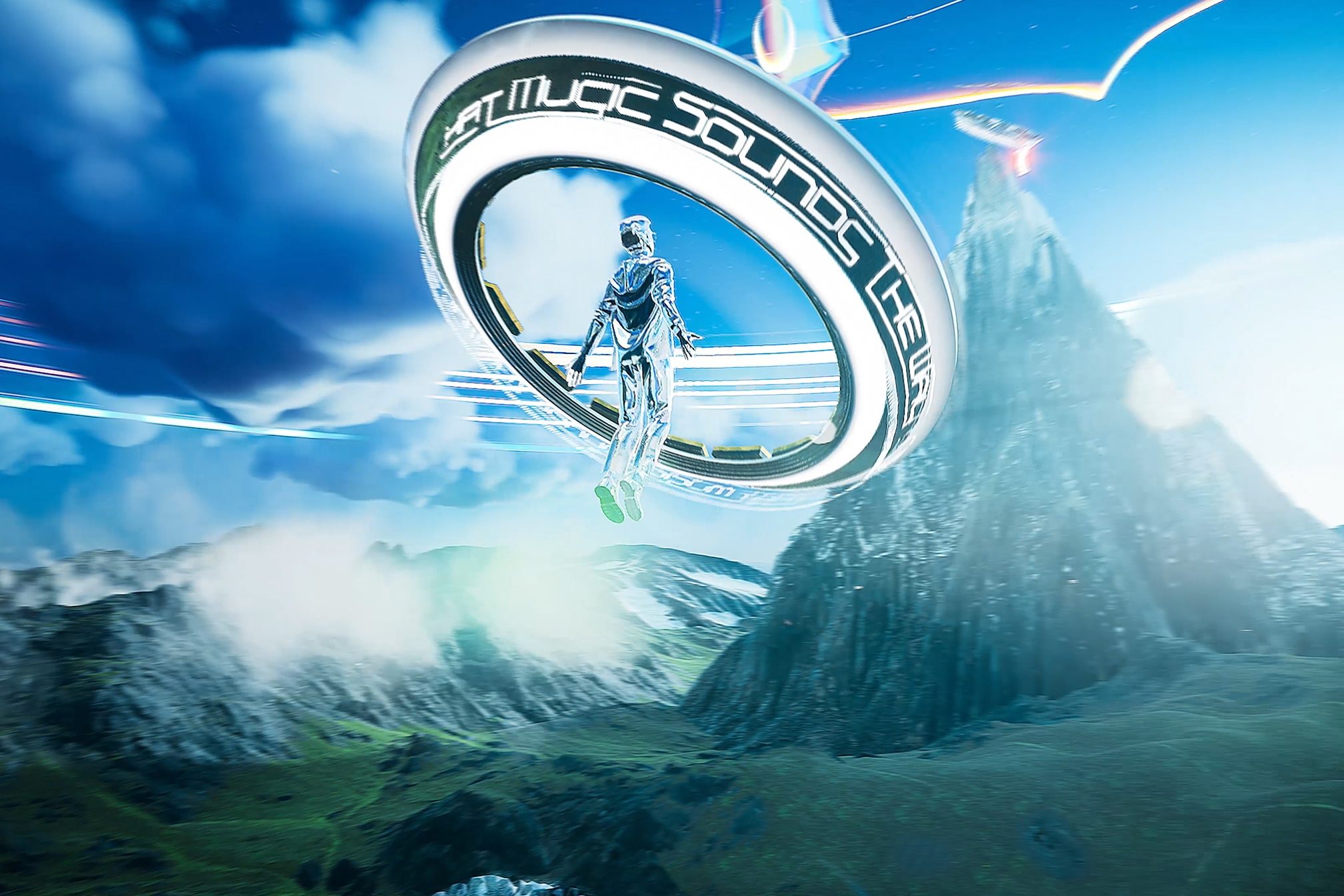
Although the idea of virtual experiences has become normalised, there is a clash with the nostalgic culture entrenched around 90s rave, which is often tied closely to technophobia. YouTube comments deifying the times of “not a cell phone in sight, just people living” have been repeated to the point of memedom. Harle’s approach rooted in his own experience of the music, embracing of technology and overhauling historical context might make purists wince. Harle is conscious in doing this; while the sounds of old skool rave fuel Harlecore, he calls it “very much a forward looking project”.
“Those sentimental 90s ravers were part of an incredibly important movement that is over. It's very hard to accept that, and to accept that there are new things,” he says. “To be honest, if I was part of that period, I'd probably be unbelievably sentimental for it as well. The reality of life is, new things come and take over. And those new styles are just as important to the young people of that time as that period was to those ravers.”
Read this next: I spent the weekend raving online and it was actually really fun
“I've heard interviews with old rave DJs and there's always this narrative of 'it was good at this point, but then these new people came along and then it's bad’, because the new thing happened that made me a bit obsolete,” he says. “This feeling that all new music is bad is just a classic older person thing to feel. The fact is, music has never been bad any period in time, it's just meaningful to you when you're a young person, because it feels like something is happening.”
He recognises that “the 90s was such an important political time, and that rave music was so embroiled in it, and people still have raves now and they still mean things politically.” He also knows how his own bedroom and headphones experience of the music made him feel as a teen, and communicating that to a new audience who might not otherwise experience those emotions is “quite a profound thing for me”.
Through ‘Harlecore’ he hopes to achieve that, and his experience of virtual events during the pandemic has proven they’re effective. During an event on Discord, “when everybody's listening and a new song comes in and they post a moving GIF to show their appreciation, that feels like a real moment,” he says. “It's easy to belittle some of these internet interactions and experiences, but they are real people feeling real things.”
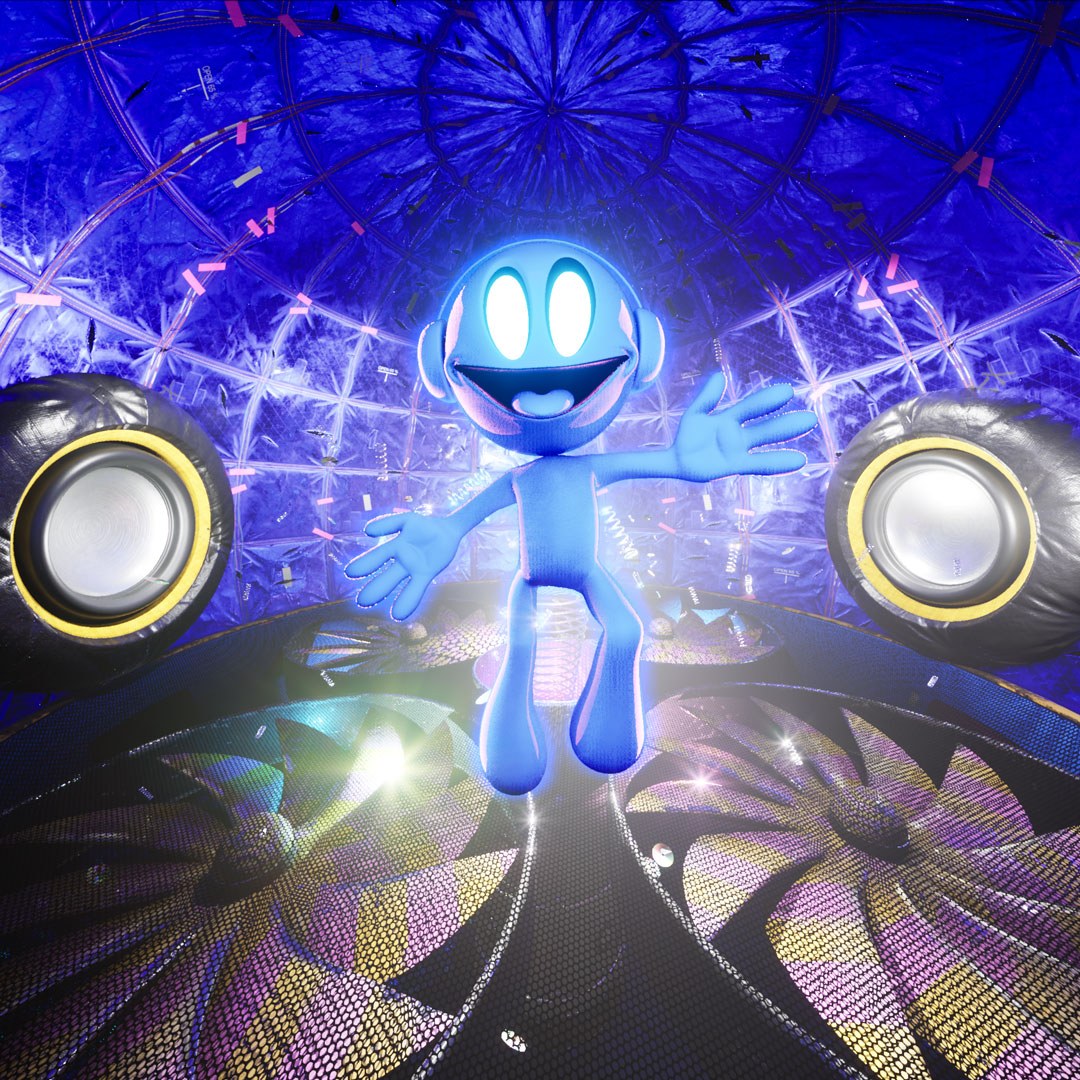
Harle’s love of technological advancement has clashed with wider sensibilities before. When the internet balked at Kanye West’s holographic summoning of Kim Kardashian’s dead dad, he tweeted “absolutely love this 100% into it”. As ever, he was being genuine. “I love that sense of emotion. I think if it provided an evocative experience to the people involved, I see absolutely no problem with it at all. I personally would love that kind of thing,” he says. “I understand that some people find that kind of thing fundamentally repulsive or uncanny, but I think a lot of people were pretending that as well.”
Technology moves at a rapid pace, and knowing there’s artists like Harle out there with the ability to fuse depths of human emotion into that space is something to value. Whatever your feelings on the blurring of the lines between tech and reality, he’s probably right in his prediction that “all the evidence is pointing towards that as the future.” As we approach that fate, the heady sounds of ‘Harlecore’ are a fittingly chaotic accompaniment.
'Harlecore' is out now via Mad Decent
Enter Club Harlecore here
Patrick Hinton is Mixmag's Digital Features Editor, follow him on Twitter
Read this next: Get the best of Mixmag direct to your Facebook DMs


